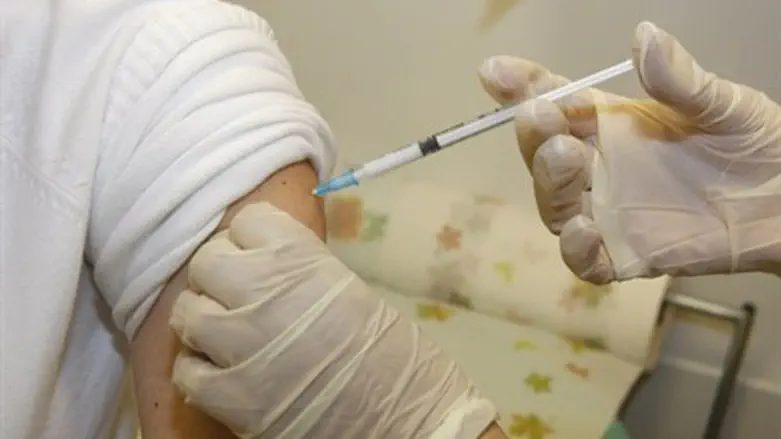
The Defense Ministry has agreed to compensate close to 100 soldiers who say they suffered long-term health damage due to their participation in Anthrax vaccine experiments in the 1990s.
The soldiers, who had sought NIS 18 million in damages, agreed to the compromise offer.
In addition, the Defense Ministry has agreed to establish a fund for hundreds more soldiers who were part of the vaccine test, but did not join in the lawsuit. A total of NIS 21 million will be put aside as potential compensation for roughly 700 more soldiers.
Defense Ministry sources say the vaccine was tested in a project termed “Omer 2.” The test subjects were volunteers, and there was no cause for concern that they would develop anthrax, the sources said. In addition, they said, doctors did not expect any serious side effects.
The ingredients used in the vaccine were largely identical to those in existing, commonly-used vaccines such as those for tetanus, they added.
The former soldiers who sued argued that the experiment was not necessary, and that possible side effects had not been sufficiently examined.
An official medical panel which studied the issue concluded in 2009 that the former soldiers may have been right in saying the test was not necessary. Committee members said they were not convinced that the need for testing had been evaluated appropriately.
However, the committee also appeared to reject the former soldiers’ claims of long-term medical damage, stating that while the results to date are not conclusive, it appears that any side effects were both mild and temporary.
Sources in the Defense Ministry expressed satisfaction at the compromise deal that was reached. “This gives a humane, national response to those who volunteered for the experiment, and will save many years of legal proceedings,” they said.